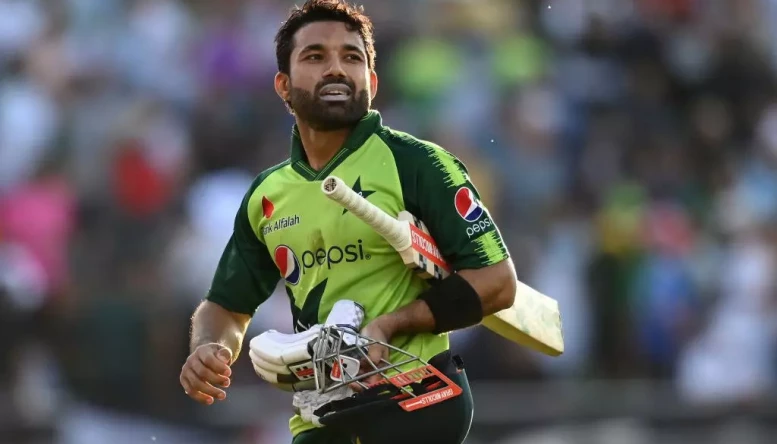T20 World Cup 2022: How Pakistan's batting has moved beyond Muhammad Rizwan Babar Azam's dependence
Coming into the T20 World Cup 2022, only one thing was sure for Pakistan – they needed both openers Babar Azam and Mohammad Rizwan to fire for them to stand any chance of making it to the semi-finals
 Mohammad Rizwan and Babar Azam Need to fire against New Zealand
Mohammad Rizwan and Babar Azam Need to fire against New ZealandDespite Rizwan and Babar's poor form in the weeks leading up to the semifinals, Pakistan made it to the semifinals.
This is a very Pakistan of problems; something that doesn't make any sense yet simultaneously makes all of the sense in the world.
Babar Azam and Mohammad Rizwan shouldered a load of Pakistan's batting for an age, yet neither has looked up to scratch during this tournament.
Mohammad Rizwan has scored 103 runs at a strike rate of exactly 100 and an average of 20.60; Babar has struggled, even more, scoring 39 runs at an average of 7.80 and a strike rate of 61.90.
Yet, while most expected Pakistan's shaky middle order to wilt under pressure if Babar Azam and Mohammad Rizwan struggled, the exact opposite has happened.
Instead of crumbling under expectations, the middle order has shouldered the weight of expectations and has even found a couple of new stars for the middle order.
The first isn't exactly an unknown name, as Shan Masood has played international cricket for Pakistan.
However, he had never made his T20I debut until the seven-match series against England – which was held just before the T20 World Cup.
Shan Masood was drafted to replace the struggling Fakhar Zaman. He provided a bit of solidity to the middle order – scoring runs whenever the two openers failed or were dismissed early.
The other player who has risen to fame – and in somewhat surprising circumstances, it must be noted – is Mohammad Haris.
The 21-year-old also made his T20I debut for Pakistan during the England series, playing in the losing effort during the penultimate match of the series.
However, he didn't play another match until he was drafted in for Pakistan's must-win game against South Africa in the World Cup – and he played a breathtaking knock, hitting an 11-ball 28 that included two fours and three sixes as Pakistan somehow won to keep their hopes alive.
He followed this up with an 18-ball 31 against Bangladesh in the next game, and his effort was significant since when he entered, the Pakistan innings needed a bit of impetus.
But it isn't just down to Mohammad Haris and Shan Masood. Iftikhar Ahmed, Shadab Khan, and even Mohammad Nawaz have stepped up and contributed when necessary.
It proves that Pakistan's middle order woes were down less to a perceived lack of temperament and ability to succeed at the top level but also down to the top two batters eating up the majority of the balls.
However, the failure of the openers – something that could have derailed Pakistan's campaign – has worked out in their favour.
In their absence, the middle order stepped up to fill the void. Now, inexplicably, Pakistan looks like a side with all bases covered going into the knockouts.
And that makes them the most dangerous side going into the campaign's final stages.
Editor's Picks
- 01
Brendon McCullum: England ready to be 'really brave' in team selection for India series
- 02
Diogo Jota inspires Liverpool surge as injuries fail to dampen Premier League lead
- 03
Cameron Norrie ready to go toe-to-toe with the big boys after stellar Australian Open run
- 04
Maxwel Cornet confident of scoring run after opening West Ham account